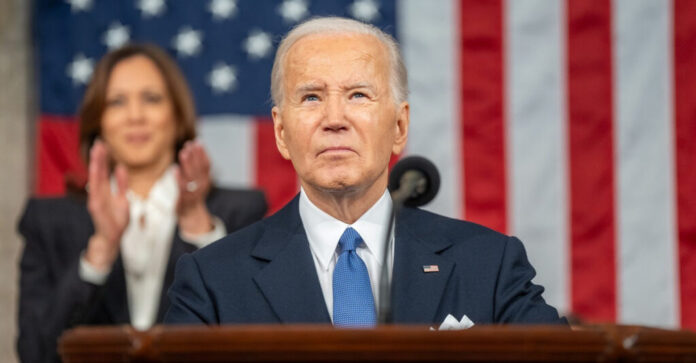
By Stacy M. Brown
President Joe Biden has called for a sweeping overhaul of the Supreme Court and a constitutional amendment to limit presidential power, signaling his intent to tackle deep-seated issues within the American judiciary. In a compelling op-ed published this week, Biden underscored the need for reforms to restore public trust and integrity in the nation’s highest court.
“I served as a U.S. senator for 36 years, including as chairman and ranking member of the Judiciary Committee,” the president wrote. “I have overseen more Supreme Court nominations as a senator, vice president, and president than anyone living today.”
Biden, who earlier this month stepped aside and endorsed Vice President Kamala Harris as the next president, said he maintains great respect for America’s institutions and separation of powers.
“What is happening now is not normal, and it undermines the public’s confidence in the court’s decisions, including those impacting personal freedoms. We now stand in a breach,” Biden stated.
The president’s most striking proposal is a constitutional amendment to ensure former presidents are not immune from federal criminal indictments, trials, convictions, or sentencing.
“We are a nation of laws — not of kings or dictators,” Biden remarked.
His assertion comes in direct response to a recent Supreme Court ruling that shields certain presidential actions from prosecution, a decision that has provided a lifeline to former President Donald Trump amid his ongoing legal battles.
Biden further advocated for imposing term limits on Supreme Court justices, suggesting 18-year terms to prevent any single presidency from exerting multigenerational influence over the judiciary. “Term limits would help ensure that the court’s membership changes with some regularity and reduce the chance that any single presidency radically alters the makeup of the court for generations to come,” he insisted.
Biden also called on Congress to enforce stringent ethics requirements on Supreme Court justices, akin to those governing other federal judges. Criticizing the current voluntary ethics code as insufficient and self-enforced, he argued for robust regulations concerning gifts, political activities, and financial dealings. “This is common sense,” he wrote. “The court’s current voluntary ethics code is weak and self-enforced.”
Biden is scheduled to elaborate on these proposals in a speech at the Lyndon B. Johnson Presidential Library in Austin, Texas, as part of the 60th anniversary celebration of the Civil Rights Act. The event, initially slated for mid-July, was postponed following an alleged assassination attempt on Trump at a campaign rally in Pennsylvania.
Last week, from the Oval Office, Biden addressed the nation, explaining his decision to end his re-election campaign and outlining his plans for his remaining time in office, including his call for Supreme Court reform. Reports had previously revealed that Biden had already communicated his ambitious reform agenda to Congress, marking a significant departure from his previous reluctance to endorse substantial changes to the court. The shift follows recent controversies involving Justices Clarence Thomas and Samuel Alito, and contentious rulings by the conservative majority on pivotal issues like abortion rights.
Justice Elena Kagan has also recently advocated for a more robust code of ethics for the Supreme Court, emphasizing the need for enforceable mechanisms to uphold judicial accountability. Despite the presidential push for these reforms, passing such legislation through a divided Congress remains a formidable challenge. Senate Democrats, including Judiciary Committee Chair Dick Durbin, have expressed strong support for Biden’s proposals but acknowledge the political hurdles ahead. Harris has endorsed Biden’s call, stressing the necessity of restoring public confidence in the court and ensuring that no individual is above the law.
“Our democracy depends on the integrity of our institutions,” Biden stated. “This is not just about reforming the Supreme Court—it’s about safeguarding the future of our nation. We must act now to ensure justice and fairness for all Americans.”


